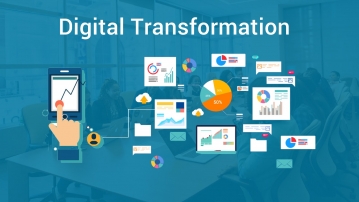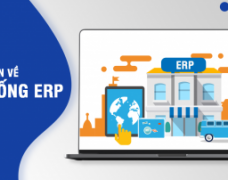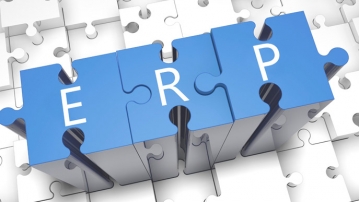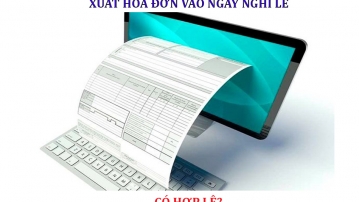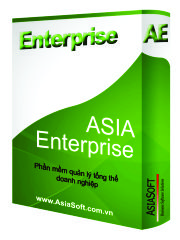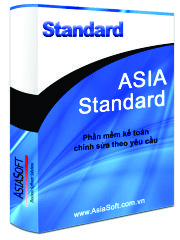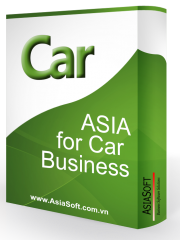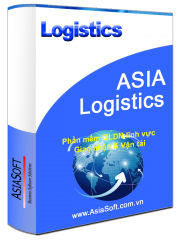 26 February, 2019
26 February, 2019
Excluded expenses when calculating corporate income tax
Excluded expenses when calculating corporate income tax is a familiar concept in accounting. However, for those of you who are new to work, you will not know what expenses are not deductible when finalizing CIT, how will the accountants handle it and how to account it?
– The first thing you need to pay attention to is to determine what are the deductible and non-deductible expenses when calculating CIT.
– The second thing you need to care about is that you need to understand: Accounting costs phíand Tax costs are two different expenses.
+ Accounting costs are applied according to accounting law
+ Taxable costs are applied according to tax law
– You can understand simply: When expenses are incurred, they must be recorded in the normal books (whether those expenses are deducted or not, they still have to be recorded as usual) -> That are accounting expenses
– When calculating CIT, you must determine whether those expenses are eligible to be included in reasonable expenses when calculating CIT (Must be applied according to the Tax Law).
– In fact, there are many accountants who know that those expenses are not included in the deductible expenses when calculating CIT, then you have handled it by: “Not accounting” of the enterprise. , leading to the mismatch of books, mismatch of debts. . .-> Thus, the financial statement is WRONG (The report does not accurately reflect the business situation of the Enterprise).
The following is a summary of all expenses excluded when calculating income tax and finalization. The level of control of some costs is based on Article 6 of Circular 78/2014/TT-BTC (amended and supplemented by Article 4 of Circular 96/2015/TT-BTC of the Ministry of Finance), Circular 25 /2018/TT-BTC.
1. Expenses that do not satisfy the conditions specified in Clause 2, Article 4 of Circular 96/2015/TT-BTC
Expenses that do not fully meet the following conditions:
– Actual arising related to production and business activities of enterprises;
Having sufficient legal invoices and documents as prescribed by law.
– Expenses if there is an invoice for buying goods and services each time with a value of VND 20 million or more (price includes VAT) when paying, there must be a non-cash payment voucher.
2. Depreciation expense of fixed assets (fixed assets)
Fixed assets not used for production and trading of goods and services.
(except fixed assets in service of employees such as: motels between shifts, cafeterias, changing rooms, toilets, rooms or medical stations, training and vocational training establishments, libraries, kindergartens, living quarters, etc.) sports equipment and eligible furniture and equipment as fixed assets installed in the above-mentioned works; clean water tanks, garages, buses for transporting employees, housing directly for employees; expenses for construction of facilities quality, purchase of machines and equipment as fixed assets used to organize vocational education activities).
Fixed assets without papers proving ownership of the enterprise (except financial lease-purchase fixed assets).
Fixed assets are not managed, monitored and accounted for in the enterprise’s accounting books according to the current regime of fixed asset management and accounting.
Depreciation in excess of regulations on depreciation of fixed assets.
Depreciation for fixed assets that have been fully depreciated.
The depreciation is equivalent to the original cost in excess of 1.6 billion VND/vehicle for passenger cars with 9 seats or less (except: cars used for passenger transport, tourism, and passenger business. hotels; cars used for modeling and test driving for the automobile business).
Depreciation for fixed assets being civil aircraft, yachts not used for the transport of goods, passengers, tourism, hotels (civil aircraft, yachts of registered enterprises and accounting for depreciation of fixed assets but in the business registration certificate or the enterprise registration certificate of the enterprise not registered in the freight transport, passenger transport, tourism business, hotel).
Depreciation for works on land used for production and business and used for other purposes shall not be included in the deductible expenses for the value of the works on the land corresponding to the unused area. into business activities.
3. Expenses for raw materials, materials, fuel, energy and goods in excess of the reasonable consumption level.
The expenditure in excess of the norm of consumption of raw materials, materials, fuel, energy and goods for a number of raw materials, materials, fuel, energy and goods already promulgated by the State.
4. Expenses of enterprises purchasing goods and services (without invoices, allowed to make a list of purchased goods and services) but failing to make a list together with payment documents to the seller, Service Provider
Purchase of agricultural, forestry and fishery products from producers or catchers for direct sale.
Buy handicraft products made of jute, sedge, bamboo, leaves, rattan, straw, coconut shells, coconut skulls or other raw materials from agricultural products of handicraft producers who do not sell directly. out.
Buy land, stone, sand and gravel from households and individuals, directly exploit and sell.
Buy scrap from people who directly collect it.
Buying properties and services from households and individuals that do not do business and directly sell them.
Purchase of goods and services from individuals or business households (excluding the cases mentioned above) with a turnover below the threshold of value-added taxable revenue (VND 100 million/year).
5. Expenses for property rent by individuals without adequate records and vouchers
The enterprise leases the property of an individual but does not have the lease agreement and the proof of rental payment.
Enterprises leasing property from individuals but in the property lease contract there is an agreement that the enterprise shall pay tax on behalf of the individual but do not have the property lease contract, the rental payment documents and the tax payment documents on behalf of the individual. multiply.
6. Paying salaries, wages and bonuses to employees
Paying salaries, wages and other payables to employees (employees) the enterprise has recorded into production and business expenses in the period but actually does not pay or does not have payment documents as prescribed by law. law.
Wages, bonuses and expenditures on purchasing life insurance for employees are not specified in terms of eligibility and entitlement levels in one of the following documents: Labor contract; Collective labor agreement; Financial regulations of the Company, Corporation, Group; The bonus regulations are prescribed by the Chairman of the Board of Directors, the General Director, the Director according to the financial regulations of the Company and the Corporation.
Paying salaries, wages and other allowances payable to employees but the time limit for submitting the annual tax finalization dossier has not yet been paid, unless the enterprise has set up a reserve fund to supplement the salary fund of the year adjacent back. The annual provision level is decided by the enterprise but must not exceed 17% of the salary fund.
Salaries and wages of owners of private businesses, owners of single-member limited liability companies (owned by an individual); remuneration paid to the founders, members of the Members’ Council, the Board of Directors who are not directly involved in production and business management.
7. Spending on costumes
Expenses in kind for employees without invoices or vouchers.
Expenses in cash to employees in excess of 5 (five) million VND/person/year.
8. Rewards for initiatives and improvements
Enterprises do not have regulations specifically regulating the payment of rewards for initiatives and improvements, and there is no council for acceptance of initiatives and improvements.
9. Expenses for vehicle allowances on vacation not in accordance with the provisions of the Labor Code.
Invoices and vouchers are not available.
Failure to comply with financial regulations or internal regulations of the enterprise when assigning travel, accommodation and allowances to employees on business trips.
10. Expenses that are deducted but spent are not for the right subjects, for the wrong purposes or the spending levels exceed regulations.
Expenses for job retraining for female employees in case the old occupation is no longer suitable and must be changed to another occupation according to the enterprise’s development plan.
Cost of salaries and allowances (if any) for teachers in kindergartens and kindergartens organized and managed by enterprises.
Expenses for organizing additional health checks during the year such as occupational, chronic or gynecological examinations for female employees.
Expenses for allowances for female employees after giving birth for the first or second time.
Overtime allowances for female employees in case female employees do not take leave after giving birth or take maternity leave for objective reasons, but stay and work for the enterprise, shall be paid according to the current regime; Even in the case of product-based wages, female employees still work during non-time off according to the regime.
Extra payments for ethnic minorities.
11. Payment of electricity and water bills to enterprises renting production and business locations; The lessor directly signs the electricity and water supply contract with the supplier
Enterprises pay directly to suppliers without electricity and water bills and lease contracts for production and business locations.
Enterprises that pay electricity and water bills to the lessor of the production and business location without proof of electricity and water payment to the lessor of the production and business location in accordance with the actual quantity of electricity and water. consumption and production and business location lease contracts.
12. Deducting, making and using provisions not in accordance with the guidance of the Ministry of Finance on setting up provisions
Applies to provision for devaluation of inventories, provision for loss of financial investments, provision for bad debts, provision for warranty of products, goods, construction works and provision for risks. professions of valuation enterprises and independent audit service providers.
13. Expenses that are accrued by term, by cycle, but by the end of the term, by the end of the cycle, have not been spent or are not fully paid.
Advances include: deductions for major repair of fixed assets on a periodic basis, deductions for activities for which revenue has been calculated but still having to perform contractual obligations (including cases where the enterprise has engaged in asset leasing and service business activities for many years but has collected money in advance from customers and has included all in the revenue of the year of collection) and other advance deductions.
14. Loss on exchange rate difference
Due to the revaluation of monetary items denominated in foreign currencies at the end of the tax period, including exchange rate differences due to revaluation of the year-end balance, are: cash, deposits, cash in transit, and receivables. denominated in foreign currencies (except for losses on exchange rate differences due to the re-evaluation of foreign currency liabilities at the end of the tax period).
15. Funding for education (including funding for vocational education activities)
Spending on the wrong target or Spending without a record to identify the grant.
16. Health funding
Expenses not to the following subjects: funding for medical facilities established in accordance with the law on health, which is not for capital contribution or share purchase in hospitals and medical centers there; sponsoring medical equipment, medical instruments and medicines; funding regular activities of hospitals and health centers; financial aid for sick people through an agency or organization that has the function of mobilizing funding in accordance with law.
Expenses that do not have a record identifying the grant.
17. Financing to build houses for the poor
Expenditures not on the right subjects are poor households according to the Prime Minister’s regulations.
Funding for the construction of houses of gratitude, houses for the poor, and houses of great solidarity according to the provisions of law, there is no record to identify the grant.
18. Business administration expenses allocated by the overseas company to the permanent establishment in Vietnam
The cost overrun is calculated by the formula:
Expense = (Taxable turnover of a permanent establishment in Vietnam in the tax period / Total turnover of the company in a foreign country, including revenue of the permanent establishment in other countries in the tax period ) X Total business administration expenses of the overseas company in the tax period
19. Expenses that do not correspond to taxable revenue
Except for the following expenses:
– Actual expenditures for HIV/AIDS prevention and control activities at the enterprise’s workplace
– Actual expenditures for performing the tasks of national defense and security education, training and activities of the militia and self-defense forces.
– Amounts actually spent to support Party organizations, socio-political organizations in enterprises.
– Expenses for vocational education and training activities for employees
– Other expenses of specific nature, suitable for each industry and field according to the guiding documents of the Ministry of Finance.
20. Local support spending; expenditures to support mass organizations and social organizations; charity spending
Except for funding for education, health care, disaster recovery, building houses of gratitude, building houses for the poor, building houses of great solidarity; funding for scientific research, funding for policy beneficiaries as prescribed by law, funding under the State’s program for localities in areas with extremely difficult socio-economic conditions. towel.
21. Expenses directly related to the issuance of shares and dividends of shares, purchase and sale of treasury shares and other expenses directly related to the increase or decrease of the owner’s equity of the enterprise.
Except for shares of the liability class, the dividends of the shares are of the liability class.
22. Fines for administrative violations
Violation of traffic law, violation of business registration regime, violation of statistical accounting regime, violation of tax law, including late payment interest as prescribed by the Law on Tax Administration and fines for tax payment. other administrative violations as prescribed by law.
23. Taxes
Input VAT has been deducted or refunded.
Input value-added tax of fixed assets being cars with 9 seats or less in excess of the prescribed amount is deductible.
Corporate income tax, except for cases where enterprises pay corporate income tax on behalf of foreign contractors, which according to agreements in contracts of foreign contractors and sub-contractors, revenue received by foreign contractors and sub-contractors. does not include corporate income tax.
Personal income tax, except where the enterprise signs a labor contract stipulating the salary and wages paid to the employee, excluding personal income tax.
24. Spending in excess of 1 million VND/month/person for: Deduction for voluntary retirement fund, purchase of voluntary retirement insurance for employees.

